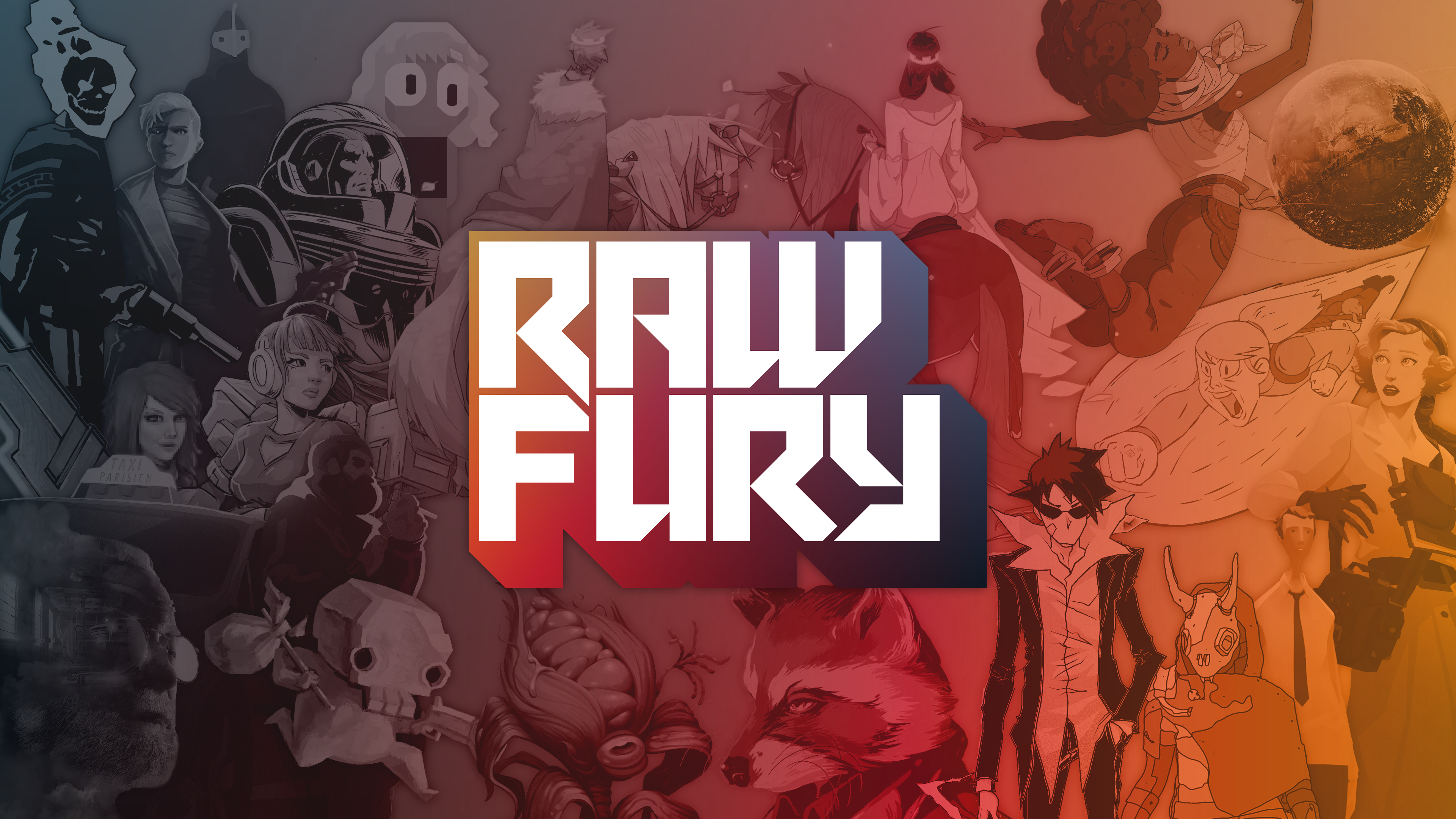Raw Fury has announced that it has agreed to a majority acquisition by Altor, a Swedish investment group. This marks Altor’s first investment in the video game industry, and a major turning point for Raw Fury, which has found success with a portfolio of more than 25 games, including the recent releases of Backbone and Star Renegades.
The deal falls under Altor’s Fund V, which is intended to invest in mid-market companies from the Nordic region and German-speaking region. And while terms were not disclosed, we had the chance to speak with Raw Fury founder Jonas Antonsson about the publisher’s growth since its 2015 founding, the path to acquisition, and how Altor’s ownership will accelerate programs that serve underrepresented communities, like the African Game Dev Prototype Fund.
The full transcript of our podcast interview (available in audio format here) can be found below.
Michael Futter: As you may have seen just now, news breaking, that Raw Fury has taken a majority investment from Altor. We are super fortunate to have with us Raw Fury founder Jonas Antonsson to talk about the publisher’s new majority investor Altor and its future. Jonas, welcome. Thank you so much for being here.
Jonas Antonsson: Thank you, guys. It’s a true pleasure. I’m excited for this bonus episode as well, so happy to dig into it.
Michael: First, congratulations. We were very excited to get this news and to read a little bit more about Altor and what your plans are, but we’ve talked about Raw Fury so much on this show. We’re big fans. I imagine that a lot of our listeners are familiar with Raw Fury, but for those of our listeners who are not as familiar, could you talk to us a little bit about your company’s founding and how you have and how you decided that an indie publisher was the way to go?
Amanda Farough: Your superhero origin story.
Michael: There it is.
Jonas: [laughs] Yes. I’ll try. Raw Fury was set up and it started back in the very beginning of 2015. I claim that the birthday of the company is January 6th, that’s at least what I put into some documents, and the reason for that is I have a horrible memory when it comes to dates. I’ve compounded dates for a long time now and January 6th is also my birthday, so it’s easy to remember. [laughs] That’s all it is.
Michael: Sadly for us here in the United States, it sticks out for another reason.
Amanda: Awkward.
Jonas: Oh yes. Oh my God, yes. My birthday was a very interesting one this year, I would say, with all the news happening over there. Yes, so to get back on Raw Fury, which is a more pleasant topic probably for everyone, is I’ve been around in the industry for somewhere around two decades now closing in on that. I’m originally from Iceland, I’m Icelandic. I started out by building a studio in Iceland many, many lifetimes ago, it feels. I did that, I ran that studio for about eight years. We had a bunch of good successes, but then ultimately, there was a small hiccup with the Icelandic banking system where all the major banks in Iceland got nationalized in one day or one night, and then somebody–
Amanda: Do you remember that?
Jonas: Yes. Those were interesting times, for sure. Someone said, at some point, “Never waste a good crisis.” I’d say that going through a period of that teaches you a lot about when you should actually panic and when things are fine. It’s a good moment to learn about when you should actually panic and when things are fine. [laughs] Coming out of that with everything that that entailed, it was absolutely crazy and a whole nother episode, a bonus episode, I think, talking about the crash in 2008 and how it affected what we were doing then.
Like I said, the biggest thing I personally took away from it is the problems with–because every business, every venture, life, in general, has its ups and downs, and going through something like that, it teaches you that there are moments where people usually start to panic and you’re like, “No, no, no, this is fine. At least they’re not nationalizing the banks, so we’re good.”
[laughter]
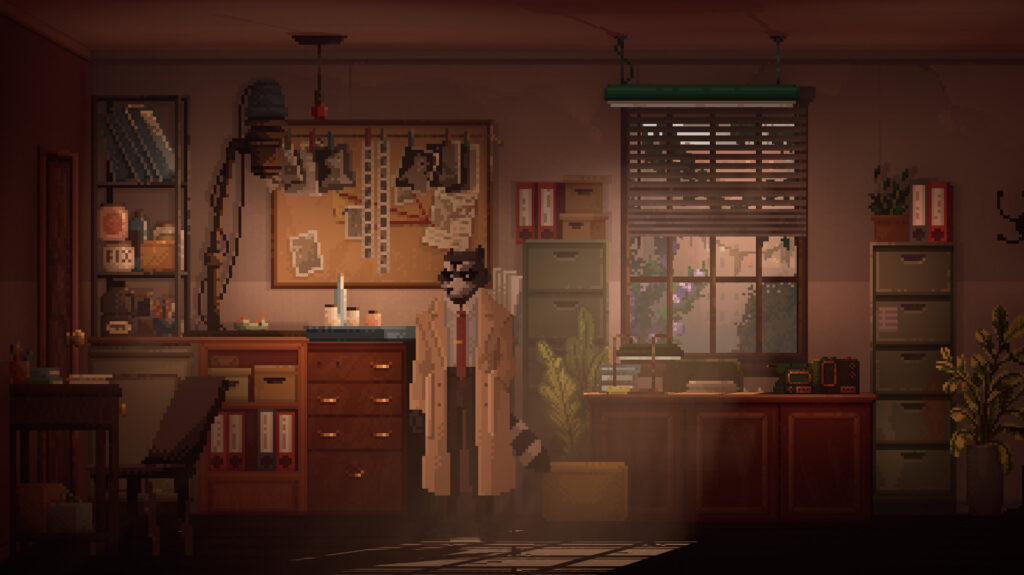
Jonas: Well, I did that for, like I said, for a couple of years also after the crash and kept the company going, then I did a few years of executive and board consulting within the space, having clients both in Europe and the US. Ultimately, ended up moving to Sweden, where I currently live, and started working on the publishing side of things. I had always envisioned putting or setting up a new development studio in Sweden after moving here, but little by little, both from my own experiences when running a development studio, dealing with publishers and dealing with funding, dealing with distribution, and then also just through the consulting work, I worked with developers, I worked with publishers, I worked with peripheral companies in the industry and then stepping fully into the publishing side, it just started to dawn on me that there are a few things here.
One is that I just started seeing that there had been so many changes and improvements in games and the landscape when it comes to games and game development and the publishing and distribution, all that, tools available like Unity, like Unreal opening more and more up, and then the platform’s digital distribution, all of that. There was new platforms, mobile devices, et cetera, et cetera. There was one area in particular that hadn’t really evolved that much and that was the relationship between publishers and developers, specifically.
What I mean by that is literally the relationship, how these two entities interact with each other. I thought there was room to create something that had a more human approach and a humane approach and looked at the coexistence of these two entities, a publisher and a developer, as something where the sum would be greater than the parts, where both parties would come together and have aligned goals and wanting to see whatever came out of that corporation and collaboration as something spectacular. The publisher should be the biggest fan and the biggest cheerleader for the developers that they work with.
I wanted to change a lot of things like the software use of how publishing works and also make that reflect in everything, the contract, how the company talks, how we act. I’ve always been a big believer in actions first and words later because talk is so cheap, and we see it now in the age of social media, it’s so easy to put anything out there and say anything. Talk is cheap, actions are what matters. I really wanted Raw Fury to be something that would not sell itself, not use words to glorify or paint a beautiful picture, but actually do it through repeated actions in the industry. I think we’ve been able to do that and that’s, I think, also why we’re here today with Altor and this big piece of news.
I wanted Raw Fury to be a disruptive entity for the industry, and especially the independent space in so many ways. Also, we’ve had now the whole controversy surrounding Blizzard and that’s another thing that, it needs to change. I think that that, again, is a field that we need to do better, but we need to do it through action and not through Twitter storms, but actually by showing and doing. That’s the long and short of it. Additionally, I also realized that I’m old now and there are far better young developers out there than this middle-aged white dude. [chuckles] I realized that, “Hey, my days of making games are just, they’re over.” I’m way better as a support unit at this point than a lead, if it makes sense.
Amanda: I love that you’re running support class. You’re a support main now?
Jonas: Yes.
Amanda: That’s really good. Support and tank. I like that for you
Jonas: Exactly.
Amanda: You just alternate between the two in this industry. It’s like you’re tanking in one minute, “Don’t worry. I got this, guys,” and the next two you’re just rah, rah, rah cheerleading. It’s perfect.
Jonas: Yes.
Amanda: It’s really great.
Jonas: That’s the thing I can do really well right now, are these two roles, yes, absolutely. [laughs]
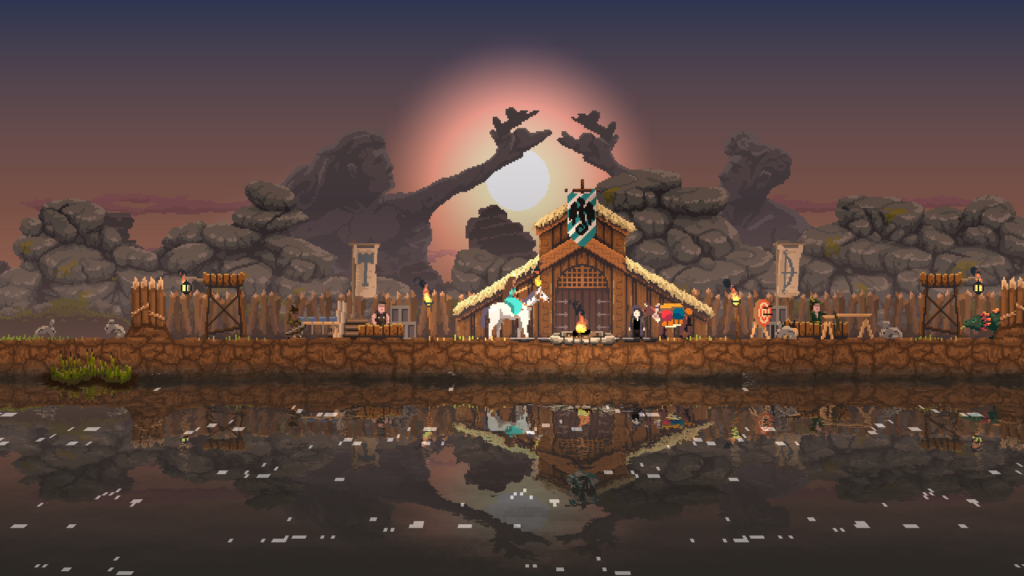
Amanda: That’s fantastic. Let’s talk a little bit about growth. I mean, you all are still a relatively young company. You’ve only been around for six years. Let’s talk about growth and how things have changed and evolved both with regards to the business and if at all, with regards to the internal culture at Raw Fury.
Jonas: Well, we can start that with when we started out, when I was talking to close friends in the industry, people that have done well both on the business side, but also investing and stuff like that. All of them thought I was a bit crazy talking about setting up a publisher in 2015. “What, are you going to, like, free to play mobile?” “No, no, no. Premium only. PC and console first. Mobile, if it makes sense.” They were like, “Oh, okay. That’s interesting. How much have you been drinking over the past month as you’ve concocted this mad plan?”
I think that what ultimately was proven was that there was room for a revival and rejuvenation within the publishing space. After us, we’ve seen some awesome indie publishers come in as well and I love to see it. I love to see–I’ll name No More Robots, for example, which I love how they operate, and that’s just one of many. Another example would be all the publishers that are collaborating with us in a project we call The Indie Houses. We can talk about that also a little later.
Michael: Yes, please.
Jonas: I think ultimately we got proven right, that there was room for change and a room to change how the publishing side was handled and how their relationships were handled and that it made sense. We’ve also been incredibly lucky that–We run under a certain principal at Raw Fury. The simple way to put it is, “You can work from anywhere at any time you want and in any way you want, as long as you get your shit done.”
Amanda: I love that “Results-Only Work Environment.”
Jonas: Yes, and ultimately, the people that work at Raw Fury have a lot of autonomy. For each game that we work with, there’s a publishing cell that takes it on and those cells are actually like small companies within a larger company, and it’s them that make the decisions.
Amanda: That’s super cool.
Jonas: I don’t know what’s going on half of the time, because there is no hierarchy. There’s no need to run things by me or anyone else in the company. The people that are closest to the games are the ones that drive the decision-making from marketing to PR to release planning, to selecting dates, price points, whatever, and they do that in collaboration with developers. On one hand, I think it’s a very great structure and it’s very easy to scale, but on the other, it’s also because I’m a little lazy, so it takes–The more we grow, the less I have to do.
Amanda: That’s the best.
Jonas: I’m actually hoping to become obsolete at just one point.
Amanda: Please put you out of a job?
Jonas: Yes, exactly. I’ll spend a month and I’ll realize, “Hey, nobody’s bugging me up on anything. I can just leave. [laughs]
Amanda: I just can play video games now, all right.
Jonas: Exactly.
Amanda: Score.
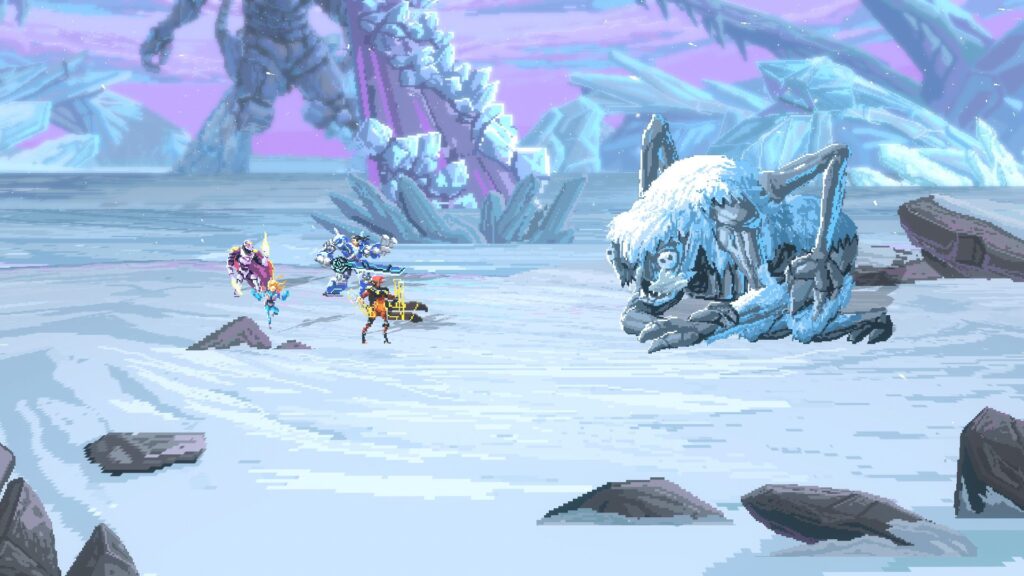
Jonas: More and more times for me to play games again, that’s the goal. No, we’ve also just been insanely lucky to have been able to attract incredible people to the company, to this journey, and I think it’s because not only what we say we are, but what we’ve done resonates with so many people. We all want to have meaning. We want to make meaning. We want to be a part of something that’s great and you feel good about, and that you’re proud of and in an environment that makes you happy.
That’s what we’ve tried to create and I think that’s why we’ve been able to attract incredible people. That has allowed us to grow quickly because that’s the key. You need people that are just amazing and kickass at what they do and just deliver. Yes, I’m in awe of the people that have decided to join on this journey. That’s really the key component. That and the developers that have allowed us to work with them throughout the years. Those are the key components of allowing us to take the next steps towards even further disruption within the space.
Michael: It’s interesting, one of the things that you mentioned was that in 2015 people looked at you like you had three heads because you were talking about starting a publisher for premium games on PC and console. That time was so interesting in the industry-
Amanda: It really was.
Michael: -because we had gone through this period of contraction. Leading up to that, we lost AA developers in total. With the loss of THQ, especially, that was the last nail on the coffin. It’s like AA’s done. Then self-publishing kicked open the door for indies, which led to this new growth. It’s been really interesting to watch–you mentioned No More Robots, there’s Whitethorn, there’s other publishers that have sprung up. Annapurna’s come on the scene.
One of the things that was interesting, and I think that covering Raw Fury in its early days was Devolver was really the indie publisher that everybody thought of at the time, and it was how are other indie publishers going to define themselves and make a brand for themselves and really stand out when it seemed like at the time, “Okay, is this role filled or is there room for growth?” I think that you’ve done a really good job, especially since you started and over the past few years establishing what it means, what Raw Fury is, and what Raw Fury stands for. Part of that is that transparency and that disruption that you talked about.
Jonas: That’s been important to me from the very, very beginning. In the beginning of this year, we published our publishing agreement and we jabbed at other publishers to do the same and follow in the example because transparency makes everything better.
Amanda: It does.
Jonas: If you truly are interested in bettering something for everyone, then transparency should be key to that. The reason we didn’t do it earlier was, again, actions speak louder than words and I wanted to do it when we had enough track record and enough oomph-
Amanda: It would have an impact.
Jonas: -that it would have an impact. Exactly. That’s why we did it. Also, it’s not something we’ve talked about publicly because we haven’t really done the big numbers reveal. How much money the games that we’ve published have made, blah, blah, blah, which people usually do. Again, it’s something that we rather do when we feel that it has a moment where it has the maximum impact. I can tell you that I think every game, except two, that we’ve currently published are in the black and the other two will be in the black.
Amanda: That sounds awesome.
Michael: That’s an amazing track record.
Jonas: Yes, exactly, because now we’ve published a bunch of games throughout these six years. It’s a big portfolio at this point. I’m not saying every game is in the black and it should be profitable, but we have those cases as well. They’re all in the black and that is what I wanted to create. Like I said, everyone, except two, which is a massive hit rate. What does that mean? It means that we are able to pay the developers that work with us. They’re getting royalties, they’re getting revenues out of their games and it’s huge. One of the things I really wanted to achieve was, “We don’t sign killers and fillers,” you’re probably familiar with that terminology, right?
Amanda: Oh yes.
Michael: Oh yes.
Jonas: I mean, every game we sign, we should sign with the goal of, “We’re signing it because we fucking love it and we want to work with it and we want to see it succeed in any way, shape, or form humanly possible.” If you sign with Raw Fury, you’re going to be treated well. You’re not just a filler in a portfolio strategy. You’re signed because the people on the other side actually care about what you’re making and believe in it.
Michael: That’s fantastic.
Amanda: Don’t mind me. Well, my heart just melts.
[laughter]
Amanda: I love this.
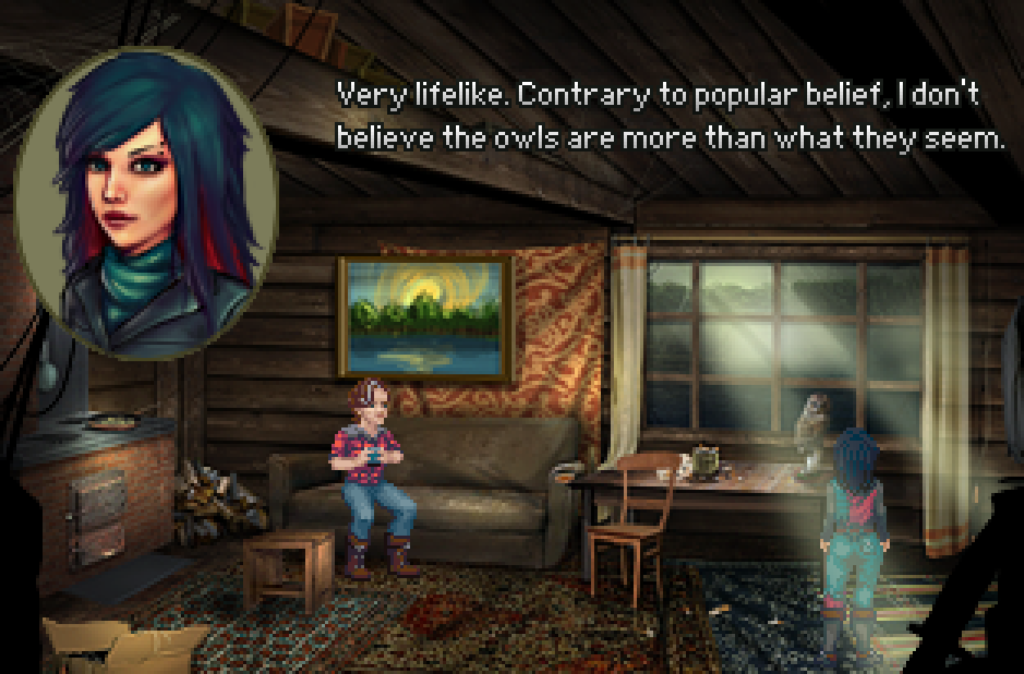
Michael: One of my favorite Raw Fury stories I covered when I was at Game Informer was the story about the Kathy Rain developers. When the story came out, it was, “Hey, we’re funding them. We’re giving them bridge funding. No obligation for them to make their next game with us. We just think it’s the right thing to do.” It was this feel-good story that I was so delighted to cover because-
Amanda: I remember reading that story, actually.
Michael: -at that point, there were so few feel-good stories about publisher-developer relationships. That made such an impact on me and it was one of my favorite stories that I ever covered.
Jonas: Thank you. It wasn’t just done out of some sort of altruism. It was done because like we wrote in the article, a publisher has patience. We have deeper pockets, we have money. Developers don’t have that patience. We knew Kathy Rain was going to break even, it was going to sell well. It was the second game we published. It’s done phenomenally well for us and it keeps selling because it’s timeless. Point-and-click adventures are timeless. If you look at just the return on investment per game, Kathy Rain has the highest rate of return on investment from our entire portfolio.
Amanda: You have to hear it.
Jonas: It wasn’t altruistic, we knew that that game was going to make us a ton of money. It was the right thing to do because in that situation, make sure the developer lives and lives to see the day when that return on investment hits their bank accounts as well, right?
Amanda: Absolutely.
Jonas: Do it under the same principles that you’ve been trying to create that collaboration and work together. Do it in the spirit of–just be human, be nice, be kind. Love your partners, love the people you work with, and treat them like people. That was really the message of that piece. We’ve done similar things over the years without necessarily publicizing them or talking about them. It’s not a one-off. We didn’t do it as a publisher set, we’ve done it in a number of cases because I truly believe it’s the right thing to do. Also, a developer like Joel [Staaf Hästö], who made Kathy Rain, he’s a fucking superstar. He’s a new injection of awesomeness when it comes to point-and-click and like the telling stories in that medium, and you know the developers, they just get better and better and better over time.
Amanda: Absolutely.
Jonas: Why not make sure that he had the environment then to continue to make and not be worried, keep making great stuff. If he wanted to work with us again, fantastic, but not make it in a way where you’re coercing someone to do it. I think that’s wrong as well because making a great game, it takes so much creativity, effort, passion and you’ll lose that as soon as you start taking away those–When you start pushing a developer down any sort of path that they don’t want to take or make, it’s just going to end badly.
Michael: We’re going to shift gears. Amanda is going to walk us through and walk you through, hopefully, the relationship with Altor, but before we get there, I noticed in the press release that you shared with us or the blog post that you shared with us, you mentioned Nordisk games and how they were your former partner and-
Amanda: Oh, I’m excited about this.
Michael: -that they helped kind of early on and get you ready for where you are now and where you’re going. Can you just talk a little bit about the Nordisk relationship before we talk in-depth about the Altor relationship?
Jonas: Sure. We’ve been partners with Nordisk for several years now, back to 2018. All in all, they’ve been an awesome partner to have. I think that they’re definitely a partner that companies in the Nordic should be talking to and should be pursuing. They have a long-term vision, they have great support units, and they certainly were really, really good to work with. When we took this next step into the journey, ultimately what we wanted to find was a partner that could support all the mad plans that we have, and those are indeed mad.
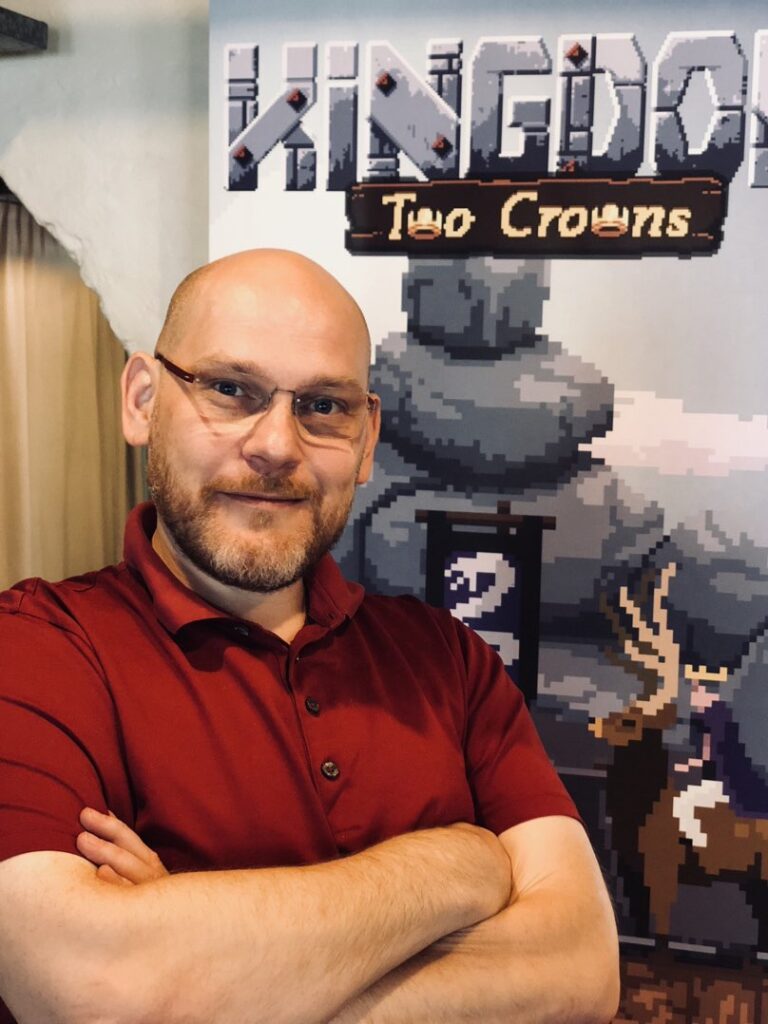
Altor is one of the biggest private equity funds in the world, it is one of the best-respected private equity firms in the world. We spent about a year and we didn’t publicize this, we didn’t go out willy-nilly shotgun approach. We spent about a year working with an investment banker that I’ve known for a long time, really to hone in and find the right partner for the company. We didn’t speak to a lot of people. Usually, when people go out fundraising, they go everywhere and they seek for–usual. We really wanted to hone in on a partner that understood what we were all about, how Raw Fury operates, what we’re trying to achieve, and wanted to support that with the big, big cannons. [laughs]
Nordic as great as they’ve been, this was a good time for them. They made a great exit of the company. They were, like I said, a great partner, but this was a good time for them, they felt also, to transition because if you look at their portfolio, we were also the only publisher in that portfolio, the predominantly. The rest of the portfolio, the half, is developers and that’s where it kind of their focus has been. I think there was also a bit of that, but yes, it was a good time for them. There’s nothing but good feelings from us or them in all of this. It was just a matter of us, and they understood that as well, the company wanting to find the best support possible that had the resources to make everything happen that we wanted to happen.
Amanda: You mentioned that you took a long time to really, really nail down the right partner and the right investor for you. As you mentioned, Altor is considered one of the best private equity firms in the world. We did our research on Altor, it’s certainly not known in the game industry because this is Altor’s first investment in the game industry. Let’s talk about how that came to fruition and what was your big aha moment with Altor?
Jonas: The conversation specifically with them has been ongoing since early spring. Again, a long time. Very early spring, I’d say. Actually, most of this year. There are several aha moments in that journey. First of all, the people on their side, the people that we met and worked with over all these months are just incredible individuals as well and they’re very passionate. They’re very knowledgeable and they’ve spent a lot of time understanding the game space. Actually, they’ve spent a long time researching games and really getting to understand it. Way before we started talking, they had spent a whole lot of time really diving into the industry and figuring out where they wanted to go.
They were most fascinated with the independence end of the industry because that’s where the creativity is, that’s where the art lives, that’s where there’s so much room for so much disruption. If you look at Altor’s history, it is originally set up by a guy called Harald Mix. He comes out of the world of investment banking, et cetera, et cetera, but his story is interesting because he comes from a relatively small town in Sweden and has very humble beginnings. When he set up Altor, at least my take on it is that he has this disruptive spirit as well. He was going into the private equity world with the goal of disrupting how that world works.
Amanda: Interesting.
Jonas: Instead of the classic grab majority, put in the suits and then go to market–
Amanda: Sell it for parts.
Jonas: Yes, exactly. What he wanted to do and that’s what they’ve consistently done over the years is they partner with the founders and with the teams and they look at their vision, they look at their plans. Just like we do when we look at games. They have the same approach. They looked at us and went like, “We believe in this journey. We want to be a part of this.” When they go into a market, they go into a segment, they go in like this, they go in after one company that they think is going to be disruptive and amazing, and then they literally lean in and say, “We believe in the people that founded this, the people that are running this, the teams that are there.”
That’s what they are supporting and running with. That’s a pretty unique approach I think too, investment to private equity, and is absolutely exactly what we wanted to look for because we didn’t also want to end up in a portfolio of companies like one of many because that’s not going to work for us.
Amanda: The antithesis.
Jonas: Yes, exactly.
Amanda: It’s the antithesis of everything that Raw Fury stands for because that’s not how you treat the developers that you work with. Why would you want that treatment in return?
Jonas: Exactly. Having someone like Altor on board now that is–you probably hear it in my voice, I’m fucking excited.
[laughter]
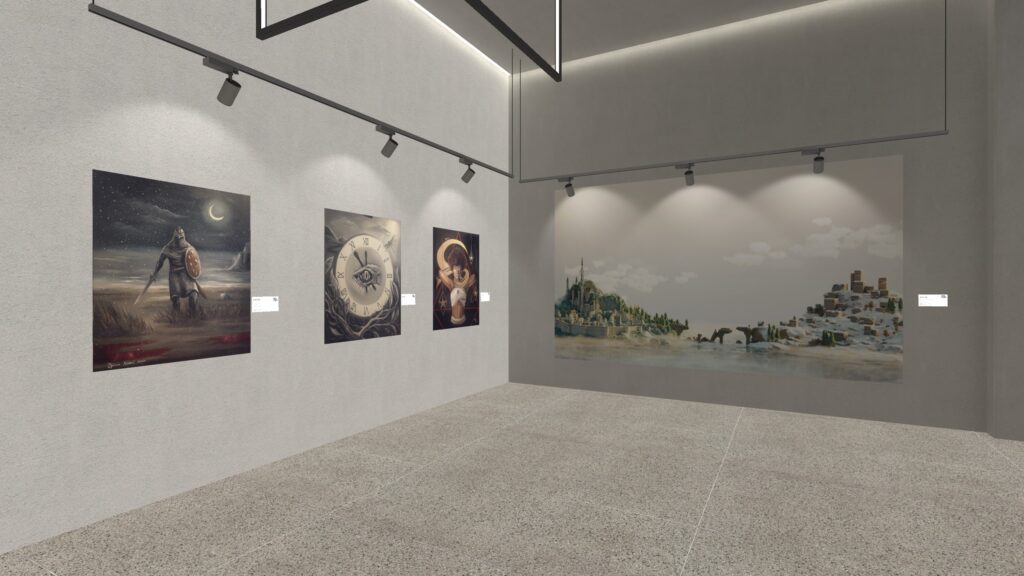
Amanda: I’m excited to get to the stuff that you’re really excited about, what this is going to do for the company. Before we get to that, one of the things that I love most about learning about these mergers and acquisitions and investments is getting in a full understanding of what it took to get there. How many other either private equity funds or investors did you speak with before you ended up at Altor? I know it took a year to really cement it, but were there any moments for you where you’re like, “Oh, I don’t know,” and you had to take a big pause?
Jonas: Yes, several. We didn’t have the amount of conversations that people usually have, because we try to be very picky. There were moments where we entered conversations with some parties that we were excited about, but then as the conversations went on, that excitement went down. Then there were moments where we went into something that just went like, “Hold on, this is not going to work.” That’s the part of the process. You have to remember, this is a good lesson to all, every developer out there as well, and I’ve said this so many times, one of the actions you can take when there’s a contract on the table is also just say no.
Amanda: It’s powerful.
Jonas: Yes. Sometimes we forget because when there’s a contract and you want to start to get–you have this feeling of, “Oh, this has to get done,” but no, maybe it just doesn’t have to get done. If it ends up not feeling right, then don’t do it.
Amanda: Exactly.
Jonas: Raw Fury is the fifth company I start, so I would say that getting to this point of everything that I’ve poured into and we have poured into Raw Fury is the accumulation of literally almost two decades of just learnings and failings and understanding and pivoting. The first company, the development studio in Iceland I built, I did everything by the book. I read every business book out there, and how should you set up your slides? What fonts should you use? How many blah, blah, blah.
Jonas: That sounds like my approach to business a lot of the time. It’s like, “Oh, I have to do all the things right.” The people that have MBAs do, right? Yes, no. Turns out that you don’t. Throw it out the window because ultimately–One thing that I learned very quickly was when you start thinking about and use words like competition and all that, what are you doing? You can’t lead if you’re always looking at what others are doing. Then you can’t really build anything new, you can’t lead because you’re now benchmarking yourself towards–
Amanda: According to what everybody else expects you to do, and what the baseline is in the industry. I feel like we’re going to be best friends after this.
[laughter]
Jonas: Love it.
Michael: One related question, were you looking at investments of different sizes? Or did you go out there thinking, “All right, we’re looking for someone that can really help us carry the ball and be a majority investor?”
Jonas: That was the most important part was really find someone that we felt would elevate that journey of Raw Fury. Someone that had the long-term view in terms of how we think about things and wanted to be a part of it. That was the most important thing, not necessarily the valuation or like blah, blah, blah, blah, blah, but find the right partner that has the capabilities and want to join and do this thing properly.
Amanda: Disrupting more disruptors.
Jonas: Yes, exactly.
Amanda: I love that. Speaking of disruptions, you mentioned that there’s some new stuff going on at Raw Fury that Altor’s investment is going to help support. Let’s walk through it. What is this in this majority investment going to do to ensure that all of your, as you said, mad ideas are going to come to fruition and at the same time still take care of the staff and take care of the developers?
Jonas: Well, just to answer that last part first, is probably it might be the Nordic roots or something, but I’ve always wanted to make sure that people that are a part of this journey with us, that they have an upside in whatever happens in the successes. Again, finding Altor, one of the aha moments there was they couldn’t agree more. They helped us create a program that is going to be awesome for everyone at Raw Fury if things go as we hope. That mattered a lot to me, finding not just the willingness to do so, but they invested so much time and money into lawyers, into consultants to make sure that we came up with something that truly was spectacular for everyone at Raw Fury.
Amanda: Oh, my God.
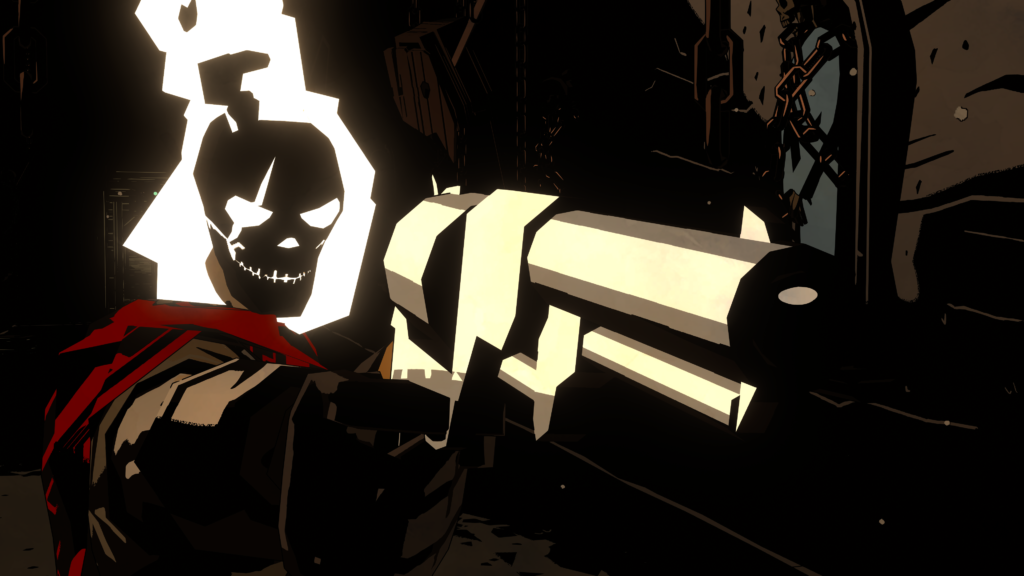
Jonas: It was fun, and it was funny because usually, they work with these programs only for executives and stuff like that. It’s still called the management incentive program, and everybody’s included in it, but they called it that just so it wouldn’t be a discussion point when talking to their investment company. It just kept the name on it. It just has an awful lot of managers in it.
[laughter]
Jonas: That was a moment then. They truly understood and understand and agree that the actual capital of a company like Raw Fury is the people that work there, is the developers that we work with, and how that needs to be front and center if the success is to continue, that that needs to be taken care of. It’s just awesome to be able to work with people that share in your values in those regards.
Amanda: From a private equity firm no less. That’s incredible.
Jonas: They broke a lot of firsts for me. I can tell you right now, and I was skeptical talking to a private equity firm, but skepticism all torn away. I think, for me, I hope this is the same feeling that when we start talking to some developers and then start working with them, I hope we have the same effect on them as well, that they might be skeptical to begin with, “Is this too good to be true?” but then hopefully, we’re able to show and not just tell. What was the question?
Amanda: The other side of that question is what other kinds of programs and projects will this majority investment help support?
Jonas: To begin with, we have two physical locations, at this point, our headquarters in Sweden, in Stockholm. Then we also have Fury Studios in Croatia, in Zagreb. From the beginning, we’ve always wanted to have an impact on the environments that we work in. Larger than that, we’ve always wanted to have a greater impact on how the industry operates. We kick-started the Guerrilla Collective last year and that whole thing, and it was important to us to not have that Raw Fury branded or created in a way that it could take on a life of its own. We got The MIX guys involved with that and they then took the ball and just ran with it, and it’s awesome.
Michael: Justin’s great.
Amanda: It was amazing. That whole thing was one of my favorite parts of last summer and it was one of my favorite parts of this summer for that matter.
Jonas: I’m so proud of having been able to get that off the ground and get it together and see it just live on. Then we did the Art of Fury this year, and we want to do that on a regular basis. I think games are, they’re vastly recognized now as, it’s mass entertainment. It’s a medium now. It’s culturally accepted as everybody plays games, but we’re still not over the hump of that final stretch of being recognized as art or an artistic medium. I think within the industry, sure, but in the general public, no, I think there’s still a resonance of Roger Ebert’s words, that games could never be art, like movies are arts, that games are just like entertainment and nothing else.
Amanda: They’re toys.
Jonas: They’re toys. I think we’re still there when it comes to the perception of people that are not within the industry, and I think that is the final hump that we need to go over. I would love Raw Fury to be a part of spearheading that, getting over that hump. Art of Fury project is one of many aspects of how we want to see that happen and how we want to spearhead that, because every creative medium has gone through this, it doesn’t matter if you’re talking about books, movies, music, they all go through this.
All artistic mediums have a duality to them, they can be highly functional, or artistic. The manual that comes with your new refrigerator uses some of the same words or the same language that Hemingway wrote his books in. Other is very functional and not artistic at all, the other is absolutely a piece of art. The same goes with every other medium like muzak versus actual music, hotel artworks that exist in every hotel room in the world versus an actual piece of art with meaning and context and everything that goes into it.
Games are the same, they are an artistic medium, but we have not yet gotten that mass recognition that this is indeed an artistic medium that can carry important messages, can convey and make people feel and discover themselves even and breakthrough and change–that’s what art does, it can change us in a moment. A book can literally change how you perceive the world, how you perceive yourself. The same goes with paintings, the same goes with music, the same goes with movies and the same goes with games.
The famous words of like, “I’m looking forward to play a game that makes me cry,” we see that today over and over and over again.
Amanda: Games make me cry literally all the time now.
Jonas: I’m the same. [laughs]
Amanda: You could not say that for me back in 2014, 2015, just maybe one game in several years span or could be longer than that. I went from, I think Final Fantasy X–between Final Fantasy X and Journey, I didn’t cry at games at all, and then Journey, that was it, I was broken. I cry at games all the time now.
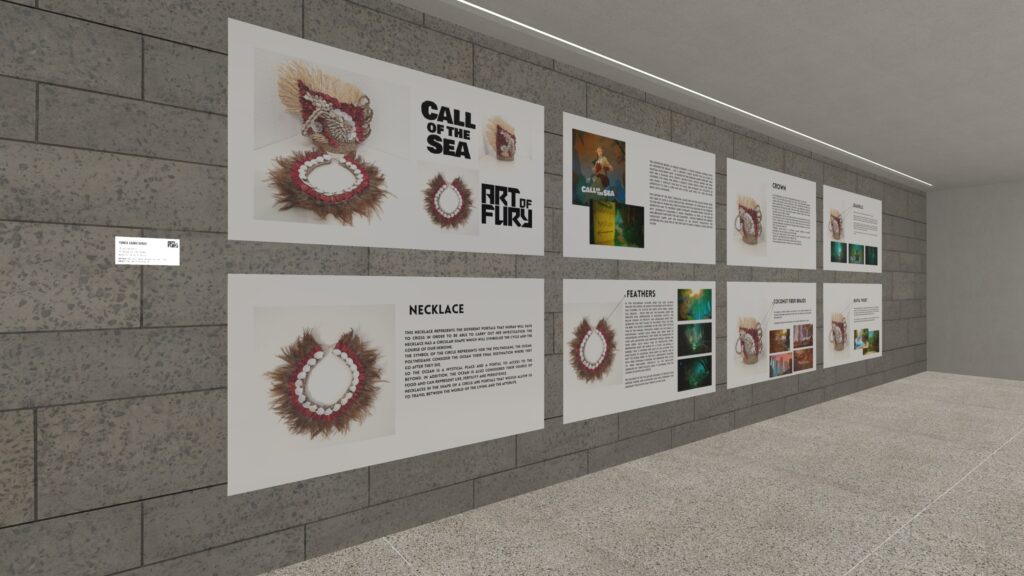
Jonas: I’m the same and both with a game called Mosaic and with Call of the Sea, at both times I cried when I saw the prototype and I got to play. Both of those games just made me ball. Then when I played Call of the Sea, the end result of the game as it exists today, I’m not going to spoil it for anyone, but there are multiple endings and there’s one ending that has a very particular moment, actually, it happens during the credits, and it just broke me. I broke down and I just cried like a baby.
Amanda: I love crying at games, it’s my favorite.
Jonas: It’s an amazing feeling. I’m super happy and just proud to be able to be some small part of those sorts of experiences. Coming back to–Art of Fury is one aspect that we’ve done, and then we’ve just recently announced something called the Indie Houses that will also be a partnership. It’s a partnership with seven indie publishers. As we go on, we’ll be introducing some pretty cool initiatives through that. Look for that. That’s going to include even funding for people that should absolutely have access to it, et cetera, et cetera. I don’t want to say too much because I don’t want to spoil the reveal.
Amanda: No, it’s okay.
Michael: We’ll talk to you again when there’s more to talk about there.
Amanda: We’ll make you laugh again with our very silly bonus episode introduction that we didn’t script out and we’re like, “Whatever, we’ll do it live.”
Jonas: I really had to mute while you were going through it.
[laughter]
Jonas: We have all sorts of those initiatives. I think what will become the most visible with Altor coming in is that we now have the ability to sign bigger indie titles with larger budgets, larger timelines, more risky in some ways, but also–We’re very excited about that. We have the ability to look at games that have more a multiplayer, service-based long-term component in them and supporting them because I’m very interested in that space and again, from the Raw Fury perspective of finding something that’s just artsy and quirky and awesome.
That’s probably going to be the first very visible, but then there are other parts that will be coming to light probably sooner than you think, where we now have the ability to do things that we’ve only been dreaming about so far. Again, I want Raw Fury to be the spearhead of disrupting the independent space even further creating additional opportunities for indie developers, no matter where they are and no matter what region they’re in, if it’s Africa, South America, Asia, Europe, US and really try to create a healthy ecosystem that spans the entire horizon of Independent Games.
Amanda: I love it.
Jonas: It’s a really big vision with a lot of moving parts.
Amanda: It does sound absolutely mad, but I’m very excited for it.
[laughter]
Jonas: It is mad, but I think, in a very good way.
Amanda: Agreed.
Jonas: It’s been my kink since I can remember. When somebody tells me something is mad, and I shouldn’t do it, and it’s impossible, that’s when I go like, “Hmmm… this has something.”
Michael: You and Amanda are going to be best friends.
Amanda: We’re going to be best friends after this, it’s like we’re basically the same person. This is entirely my life. I’m like, “Oh, I’m sorry. You told me I can’t do this thing. I’m definitely going to do it almost entirely out of spite now.”
Jonas: That’s how I work as well.
